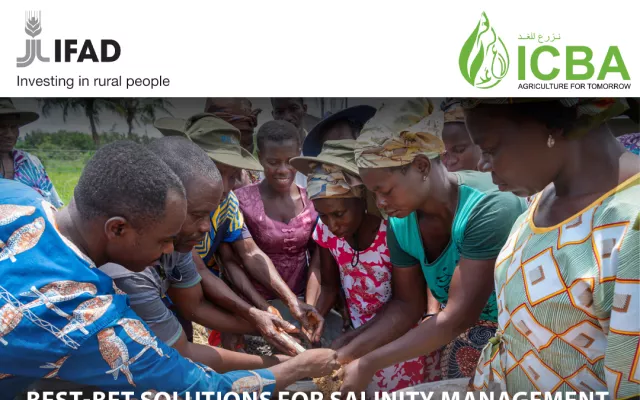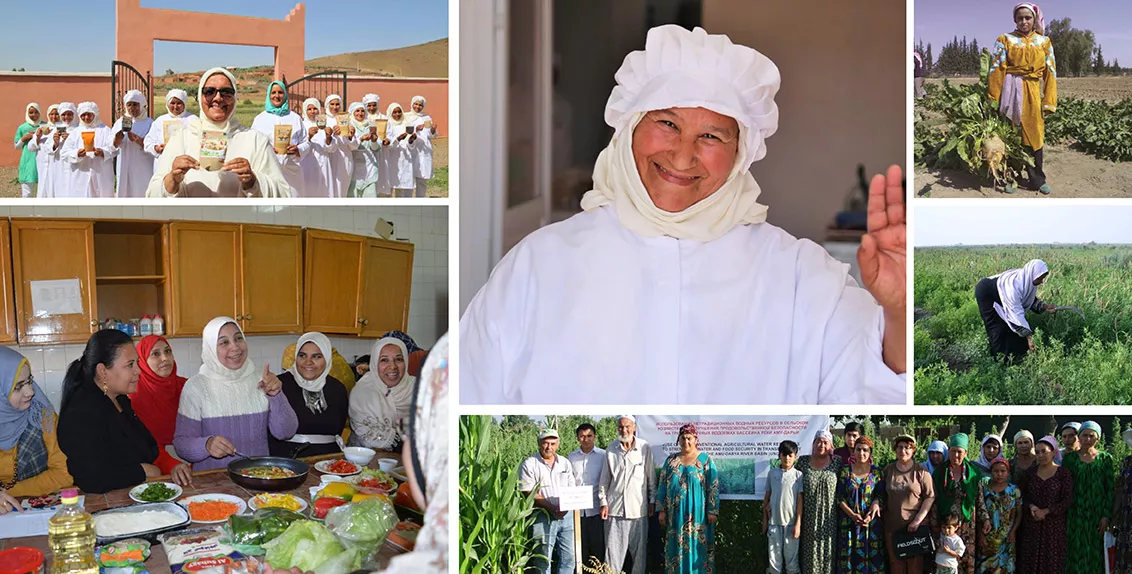Rural women: a driving force for food security and prosperity
15 October 2021
Received wisdom is that agriculture is the main engine of growth in rural communities around the world. And that women are the linchpin of rural households. But while women often toil at home and on the farm to cater for their families, they usually do not enjoy all the benefits of their labor.
Although they engage in paid work – so much so that they make up, on average, more than 40 percent of the agricultural labor force in developing countries, ranging from 20 percent in Latin America to 50 percent or more in parts of Africa and Asia - most of their duties are unpaid. These responsibilities cover a broad range of household and farm tasks, including raising crops, preparing food, tending to livestock, collecting water, caring for children, and managing the household. Women are also more likely to take part in unpaid, seasonal, and part-time work, and they are often paid less for their work compared to men.
Whether they do paid or unpaid work, women’s contributions are critical to their communities. However, they face hurdles to access methods of agricultural development such as training, inputs, and land. These barriers not only prevent women from reaching their full potential but also cost their communities. According to the Food and Agriculture Organization of the United Nations, if women had the same access to resources as men, agricultural yields could increase by as much as 20-30 percent, with the potential to reduce food insecurity for 100-150 million people globally.
Women also experience higher levels of food insecurity. In 2020 the number of people who did not have access to adequate food rose by nearly 20 percent, reaching more than 2.3 billion. Unfortunately, most of them were rural women.
It is obvious that it is impossible to eradicate extreme poverty and hunger without achieving gender equality and empowering rural women in the first place.
This is what the International Day of Rural Women – established by the United Nations General Assembly in 2007 and celebrated every year on 15 October - aims to raise awareness about. Not only does the day recognize rural women’s vital role in managing households and their invaluable contributions to their families and communities, but it also promotes global efforts to support rural women. This is also reflected in this year’s theme “Rural Women Cultivating Good Food for All”.
The International Center for Biosaline Agriculture (ICBA) has always placed rural women at the center of its research-for-development efforts in different regions. Over the past two decades, the center has supported rural women through a wide range of projects and capacity development initiatives, equipping them with tools and skills to cultivate resilient crops and improve their livelihoods.
One example is a recent major quinoa project in Morocco. The project helped to enhance value chains for quinoa and supported groups of rural women such as the 3ème Millénaire cooperative (the 3rd Millennium in English) in turning quinoa into value-added products. The cooperative employs 30 women from nearby villages and produces, markets, and sells a range of value-added products such as couscous.
A similar project in Egypt in 2015-2018 helped rural communities, and specifically women, farm salt-tolerant crops like quinoa and Salicornia. The project also encouraged women to use quinoa in traditional dishes. What is more, hundreds of rural women were trained in the production and processing of food and feed from these salt-tolerant crops.
Under another project in Egypt in 2010-2015, around 45 rural women were provided with dairy processing equipment and training to make yogurt, cheese, and other dairy products. Over the course of the project, 670 farmers attended various training courses and more than 5,000 farmers, including women, benefitted from capacity development events such as field days.
As part of the latest project, ICBA worked with rural communities in Egypt to promote agricultural entrepreneurship through the cultivation of climate-resilient crops. Nearly 30 quinoa- and five Salicornia-based products were launched and presented during various events as a result of the project. Between February and April 2021, a series of online training courses were organized by ICBA, which benefited about 500 participants from 49 countries, of whom 30 percent were women.
These and other projects form part of ICBA’s broader goal to enable women to grow and earn more for themselves and their families. After all, rural women are at the heart of sustainable agricultural development. Their work is critical for food security and livelihoods in many countries. So, when they do well, nations also prosper. And this prosperity is passed on to future generations.










